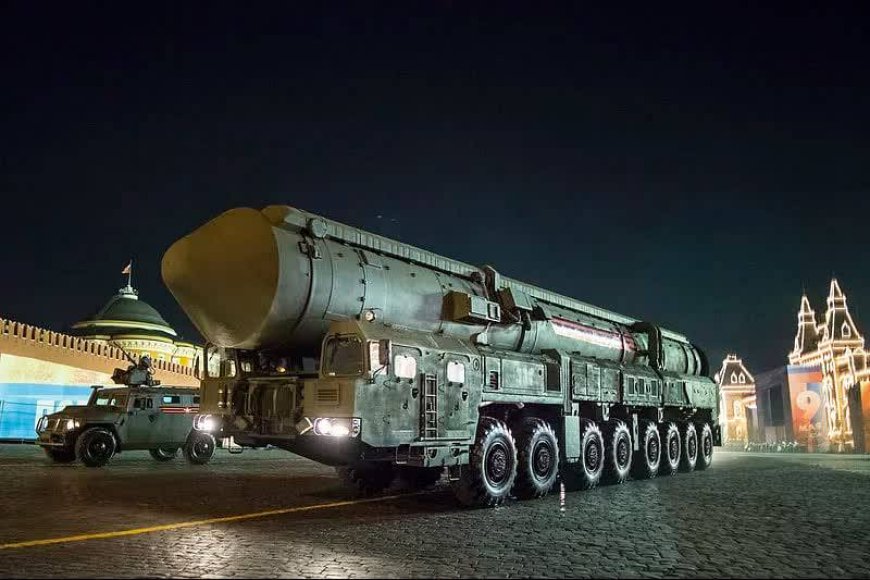Modernizing Russia's Nuclear Arsenal: Putin's Motivation for CTBT Withdrawal
In the intricate realm of global nuclear diplomacy, Russia's recent decision to withdraw from the Comprehensive Nuclear-Test-Ban Treaty (CTBT) has sparked a series of debates that warrant meticulous examination. This controversial move is deeply rooted in Russia's pursuit of strategic deterrence and its unwavering commitment to safeguarding its national security interests. In fact, it is a response to President Vladimir Putin's proposal to potentially resume nuclear tests, reflecting a pragmatic approach to fortifying Moscow’s nuclear capabilities.

Despite signing the CTBT in 1996, the United States never ratified the treaty. However, it is crucial to comprehend that Russia's decision to withdraw from the CTBT is not driven by an immediate desire to conduct nuclear tests. Rather, it stems from a strategy to foster Russia’s nuclear deterrence doctrine. In other words, the Kremlin seeks deterrent parity with the United States in this domain in particular.
The conflict in Ukraine has spawned a cascade of geopolitical ramifications, some of which reverberate profoundly throughout global security. Among these implications is Russia's unexpected contemplation of withdrawal from the CTBT. This development underscores the intricate state of relations between Russia and the United States.
Established in 1996, the CTBT categorically prohibits the detonation and testing of nuclear weapons worldwide. While 187 countries have signed the treaty and 178 have ratified it, its entry into force requires ratification by 44 countries possessing nuclear capabilities or research reactors at the time of negotiation. Notably, seven countries, including China, North Korea, Egypt, India, Pakistan, and the United States, have yet to ratify this treaty. This situation has been perceived by some analysts as weakening the efficacy of the CTBT.
Against this backdrop, President Putin's recent address in Sochi shed light on Russia's developed nuclear armaments. Since the onset of the Ukrainian conflict in February 2022, Putin's rhetoric has repeatedly emphasized nuclear capabilities, employing Russia's formidable nuclear arsenal as a deterrent against Western support for the Ukrainian regime. In essence, these radical moves by Moscow appear to be measured diplomatic provocations, seeking to enhance bargaining chips and force the United States to the negotiation table. If not managed astutely, these actions could potentially initiate a domino-like nuclear competition in Europe, according to some observers.
On the other hand, Russia's motivations for withdrawing from the CTBT are multifaceted. It can be perceived as a response to Western sanctions and Russia's increasing isolation on the global stage. Russia's withdrawal from the CTBT stands as a significant stride that demonstrates its willingness to adopt a confrontational stance against Western governments.
Furthermore, by resuming nuclear tests, Moscow aims to modernize its nuclear arsenal and bolster its military capabilities, potentially gaining a tactical advantage in a rapidly evolving global security landscape. The continued supply of weapons to Ukraine by Western countries serves as an additional catalyst for Russia's decision to revoke the CTBT. This military support adds yet another layer to the various factors prompting Russia to reassess its stance on nuclear testing, underscoring the nation's determination to excel in nuclear weaponry, among other military realms.
The United States' decision to sign the CTBT in 1996 without subsequent Senate ratification has been a consistent source of friction in Russian-American relations. In Russia's view, this situation confers a distinct advantage upon the United States, enabling it to develop advanced nuclear weapons without the necessity of conducting actual tests. This perception underscores a fundamental disparity in compliance with international arms control agreements, eroding trust between these two nuclear superpowers. Concurrently, Russia has embarked on an extensive and ambitious program to modernize its nuclear arsenal, encompassing advancements in the development of cutting-edge nuclear weapons, particularly hypersonic missiles. However, Russia's ambitious modernization efforts have been hindered by the nuclear test ban imposed by the CTBT. The ability to conduct nuclear tests provides Russia with a crucial tool for evaluating and fine-tuning these doomsday weapons.
Additionally, pressure from internal nationalist factions within the Russian government played a role in the decision to withdraw from the treaty. Failure to do so would have likely engendered internal divisions and subsequent challenges for Putin.
Hence, Russia's withdrawal from the CTBT represents a pivotal step within the framework of its macro-politics, portending a significant transformation in the country's nuclear and military doctrine in the future. Undoubtedly, this approach will exert a profound influence on future relations among European countries and the broader global landscape.













































